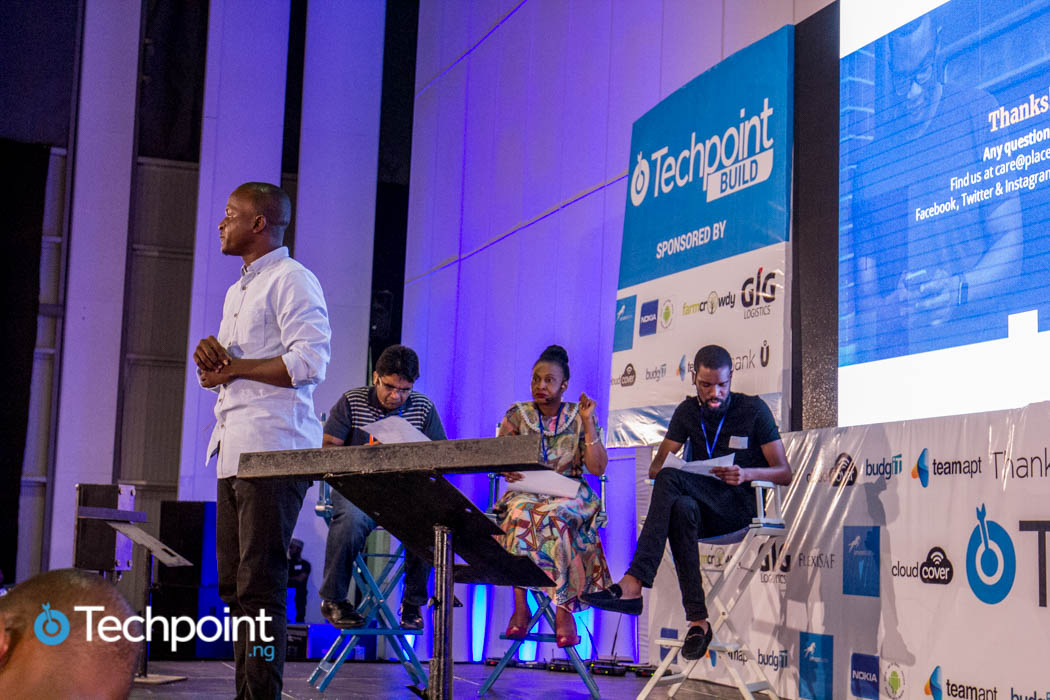By Oluwaseun Ben-Omotehinse
Ideas, they say, are free as air and rule the world. This is driven home by developments across the Nigerian tech community with the emergence of idea-powered solutions constantly being deployed and completely upending the trajectory of the Nigerian economy.
Everywhere we turn, emerging tech companies with cutting edge innovations are taking over the market space. Whilst this in itself is testament of the ingenuity and innovation of the Nigerian mind, one must hastily point out that generating an innovative solution is only half the mile. Putting in place adequate measures to safeguard your idea before attracting required investment or scaling, has proven to be the end of many groundbreaking ideas.
It is not uncommon that ideas of techpreneurs are stolen by the very persons from whom they seek support. Expectedly, as conversations go deeper, the need to reveal increasingly significant information to a would-be investor is inevitable.
Thus, idea owners must ensure that their disclosure at all material times is limited, deliberate and calculated. Admittedly, techpreneurs who have at one time or the other suffered from uncalculated disclosure readily admit that a lack of awareness or information, failure to keep proper documentation and revealing a lot more than is required has led to their fingers getting burnt.
Suggested Read: Eazyhire vs Easyhire: A sad case of Nigerian startup plagiarism?
Before the pitch
It is therefore of critical importance that techpreneurs put safeguards in place to protect against idea theft and loss. They should:
A. Disclose information moderately
It cannot be overemphasised that idea owners in preliminary discussions with third parties should reveal only information that is absolutely relevant without delving into the specifics or details of their ideas.
It is suggested that it would be sufficient to disclose in brief, the problem or the need which the idea seeks to solve and the innovative solution developed without more, when pitching to a potential investor or partner. In the event that discussions progress significantly with the investor or partner, it becomes imperative to adopt more formal safeguards.
B. Execute Non Disclosure and Non Compete/Non-Circumvention Agreements
When it becomes obvious to a techpreneur that proprietary information pertaining to their solution would be disclosed or made known to a third party, it is critical to put in place a non-disclosure agreement (NDA) to be executed by potential investors or any third party with whom the idea owner is exchanging information with.
NDAs equally assume some relevance in cases where the techpreneur engages the expertise of some skilled person(s) to fine-tune, improve or actualise the idea. In such circumstance, the NDA could prove immensely useful.

Closely related to the NDA is the non-compete/non-circumvention agreement (NCA). The NCA is a legal document or a clause in a legal document which seeks to prevent persons with whom information is shared from utilising the information against or in competition with the idea owner.
It goes further than an NDA by seeking to ensure that the persons to whom information is disclosed do not undertake a venture to exploit the idea for themselves or through third parties.
Whilst NDAs and NCAs are fairly ‘standard clause’ agreements, idea owners are well-advised to consult a lawyer to ensure that these legal documents are crafted to suit their specific objectives. That said, a good NDA or NCA should contain clauses that amongst others deal with:
- Scope of the obligations/definition of confidential information
- Term/duration
- Specific proscriptions
- Consequences of breach
- Dispute resolution provisions
C. Insert confidentiality statements in correspondence
Admittedly, there are occasions where the pressing demands for business efficacy do not provide the opportunity for the execution of an NDA or NCA between the idea owner and investors or other third party partners.
As a pre-preemptive step, it is recommended that confidentiality statements be conspicuously printed on correspondence, including emails, proposals, business plans or pitch documents etc.
Although, not a ready substitute for an NDA, the confidentiality statement on a document clearly puts parties coming in contact with the information or ideas contained in such documents on notice, that the said information or ideas enjoy some measure of confidentiality. There is recent persuasive authority to the effect that exchange of emails can suffice to establish a contract and whilst having an NDA/NCA is preferable, such statements provide some respite.
D. Protect your Intellectual Property rights

It is of critical importance for a techpreneur to take advantage of other legal options to protect their interests, preferably before talking to investors or partners.
Techpreneurs can secure and enjoy intellectual property rights for their ideas under copyright, trademark, patent or industrial designs, such that any established case of infringement would entitle the idea owner to recover damages. These intellectual property rights afford an idea owner separate protection under law i.e. more than one form of protection is available.
Ideas become only eligible for copyright protection once the ideas have left the realm of ideas and have been expressed in a fixed medium. Put in other words, “Copyright protects the creative expression of an idea, the idea in and of itself is not copyrightable“.
There must also be some distinct originality or significant effort expended to make same original. This is important for tech startups because, there can be no infringement on copyright, even though ground breaking, where the code for the app has not been written or developed. In sum, every conceived idea must be expressed in a tangible medium to enjoy copyright.
Trademarks seek to protect the names, words, symbols or signatures associated with a techpreneur’s products or services or used in identification of these products or services in the market place.
Where an idea will result or results in an invention, then the idea owner should be thinking along the lines of securing patent rights. It should be noted that it is not every invention that can be patented. The idea owner must demonstrate that the invention is novel, results from inventive activity and is capable of industrial application.
The law equally recognises the rights of persons in designs i.e. industrial designs — resulting from a combination of lines and/or colours, as well as three dimensional forms or patterns, which can be multiplied by industrial process (SPA Ajibade & Co., A review of Contemporary Legal Trends in Nigeria Law (2017) Lexis Nexis, South Africa).
It is also advised that techpreneurs must be quick to endorse their products or pitch documents with information that indicate their innovation enjoys copyright, is trademarked or patented or his application for same is pending.
E. Document, Document, Document!
Nothing thrills a lawyer more than clients who have paper or electronic trail of their communication with a counterparty. Such clients are an absolute delight.
It is strongly advised that those who develop ideas endeavour to document milestones in the development process and when they initiate any sort of conversation with third parties or investors, they are careful to ensure proper records are kept. As in the unlikely event the idea is stolen, it is easier to prove original ownership and establish that the idea was indeed stolen from the owner.
Conclusion
Whilst there is no gainsaying that ideas rule, a techpreneur must always go beyond conceiving an idea to deploying significant efforts in incubating the ideas into a cognisable medium of expression to enjoy the protections available under the law.
Needless to say, techpreneurs, startups and idea owners need to insulate themselves, their ideas, products and offerings from sharks and the vagaries of a harsh business environment and it is recommended that they always seek support and guidance from lawyers before they pitch.










